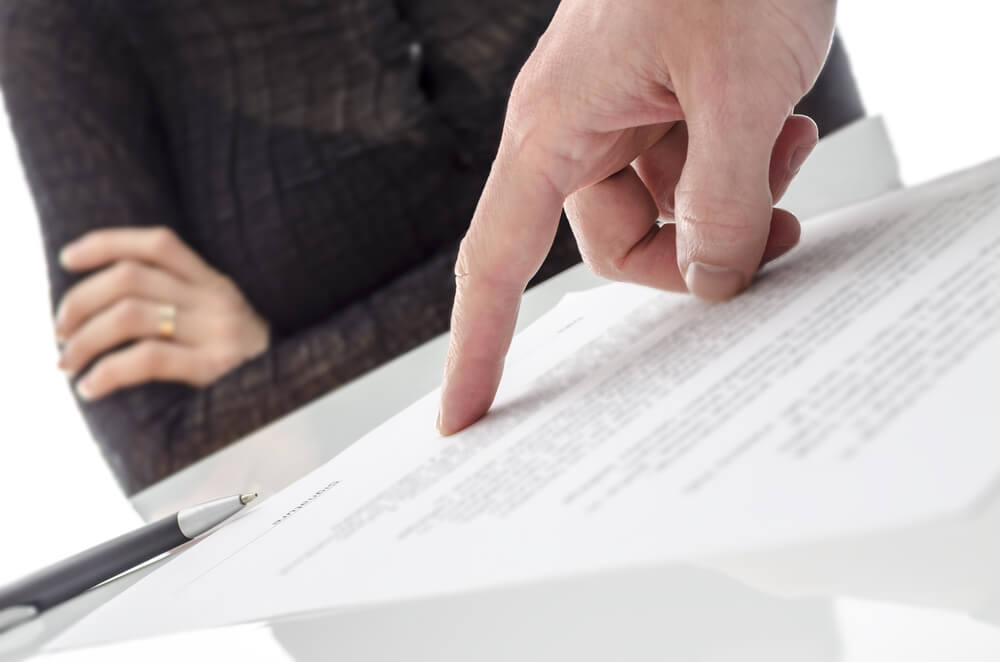According to Bloomberg Law News, workplace settlements in 2022 netted nearly $2 billion. More aggressive litigation against corporations is expected for 2023.
While it may be impossible to eliminate the possibility of an employee lawsuit, the likelihood can be reduced. Partnering with an HR outsourcing solution can minimize the chances of a case.
However, the first step to avoiding a lawsuit involves understanding why an employee might sue.
Why do employees sue their employers?
Five main issues can cause an employer to face litigation.
Discrimination
Any discrimination or harassment based on race, color, age, national origin, sex, sexual orientation, gender identity, pregnancy, religion, disability, or genetic information is prohibited by federal law. Also included is the denial of reasonable accommodations concerning disability or religion. For example, the absence of entrance ramps or preventing an employee from wearing garments required by their faith may constitute discrimination.
Harassment
Harassment is any type of unwanted behavior, not just sexual harassment. It can include intimidation, mockery, unwelcome pranks, name-calling, slurs, insults, offensive jokes, offensive images, exclusionary tactics, or unreasonable criticism. Enabling or ignoring harassment in the workplace is an excellent way to get sued.
Retaliation
One of the most common claims in employment-related lawsuits is retaliation. When an employee complains about illegal or inappropriate activities within the workplace, employers should maintain robust complaint reporting and investigation policies that protect employees from retaliation.
Wrongful Termination
When an employee is fired in violation of any federal, state, or local law or in breach of the employment agreement terms, it constitutes wrongful termination. Although many states have what is considered at-will employment, meaning an employee can be terminated for any reason, firing without cause or proper notice may trigger a lawsuit.
Wage and Hour Violations
Wage and hour violations happen when an employer fails to compensate employees for all hours worked. It may be in the form of not adequately calculating time or overtime rates or requiring that employees work off the clock.
Safety Problems
An employer can be sued if an employee is intentionally placed in a dangerous work environment and suffer injury or death. Every workplace must meet the safety standards specified by the federal Occupational Safety and Health Administration (OSHA).
A strong HR department helps employees feel respected. It follows that each individual who knows they are valued is much less likely to consider filing a grievance or lawsuit.

How HR Outsourcing Helps to Prevent Lawsuits
An essential resource for any company is the human element. Your HR staff is the vital connection between those employees and you. When your organization's people feel confident in HR, that is a good step toward avoiding difficulties.
Outsourcing HR is one of the best ways to attain that confidence and avoid lawsuits. A professional employer organization (PEO) is an HR outsourcing solution that takes on many administrative responsibilities of employment so employers can focus on the business itself. Also known as a co-employer, a PEO manages payroll, taxes, and benefits and investigates and deciphers labor laws so that the companies they partner with remain in compliance with regulations.
The ways that working with a PEO prevents employee lawsuits include:
Managerial Training
A PEO offers training to managers to help them learn what discrimination looks like and how to prevent it. It also guides how to not retaliate against whistleblowers and what to do when one or more co-workers harass an employee. It assists managers in spotting and stopping these offenses before they can become a problem.
Employee Training
For employees, a PEO provides company handbooks and training on how to not discriminate against co-workers. It explains what classifies harassment and how to deal with it. If an employee goes against the training, the business owner is not responsible for their actions. This creates a goodwill defense against lawsuits.
HR Compliance
Employment and labor regulations demand ongoing attention and expertise. Because a PEO handles payroll, it will ensure that your company complies with the wage and hour laws of the Department of Labor. It can also help streamline records to support possible termination and discipline issues and demonstrate a lack of discrimination.
Risk Management
As part of risk management, a PEO will provide a tailored safety plan to your staff. They can conduct detailed safety training to ensure your company complies with OSHA. This lessens the risk of injuries and lawsuits.
Partner with a PEO to Prevent Employee Litigation
The HR Department is one of the most important aspects of any business. Working with a PEO helps keep HR-related costs at a minimum while improving HR processes. By offering training and risk management, a PEO can help your business remain in compliance and avoid costly employee lawsuits.



